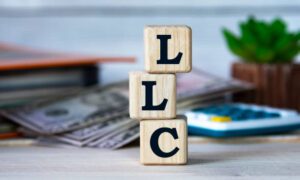Are you a new small business owner? Well, before you delve into the intricacies of starting or operating a small business, it is best to be informed about taxes in Ontario. Taxes can have a significant impact on any company’s profits and success; thus the importance of knowing what they entail. This blog post is designed to give you an overview of tax legislation that impacts small businesses in Ontario specifically. With the proper ideas & knowledge of small business tax in Ontario, you can better evaluate your options and make decisions that will benefit your company.
What does being a small business owner means?
Being a small business owner in Ontario means being a self-employed person who has started or acquired a business. In other words, you are an entrepreneur rather than an employee. The difference between the two is as simple as being your own boss.
Small business includes not only self-employed people but also those who have incorporated their company into a corporation. These businesses are considered legitimate organizations and are taxed in much the same way as the rest of the business sector. You don’t need to open physical stores or even employees to small businesses in Canada.
What taxes do you need to pay if you are running a small business?
In Canada, you need to pay at the federal and provincial, or territorial level. The federal government collects income taxes and calculates the tax credit. The province or territory then collects provincial or territorial (Canada’s level) taxes on the revenue that is then shared between the federal and provincial governments.
In Canada, there are three taxes that you need to pay on your small business. They are:
- Corporate income tax (CIT): This is a federal tax designed to help offset the costs of running a business. You pay this tax when buying goods and services from other companies or when you sell goods or services of your own. The government of Canada collects this tax on behalf of the provinces and territories.
- Ontario Business Income Tax (OBIT): This is a provincial tax that applies to all businesses. It is intended to pay for public services like roads, the police force, and social programs such as health care and education. It’s also used to help pay for a provincial debt, so that future generations won’t have to pay back the costs of previous generations.
- Payroll expenses: This is a personal tax that you need to pay on your personal income or expenses if you are self-employed as a small business owner in Ontario. The Ontario government collects this tax on behalf of the federal government. If you are self-employed and your business pays you a salary, this is a payroll expense.
Note that other types of expenses such as advertising and travel do not qualify as payroll expenses.
Does my business structure affect my tax returns?
It depends on your business structure. The main difference between sole proprietorships and corporations is the tax code. The most common ways to structure a business are as a sole proprietorship (sole owner, single member) or as a corporation.
Sole proprietorships in Canada are subject to personal income tax on their profit, with the exception of dividends from their personal investments in their business. Sole proprietorships have no taxes on the cost of goods sold (CGS).



































